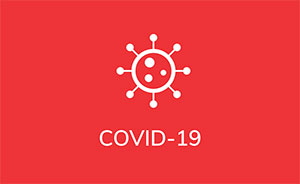Introduction:
This abstract from the American Society of Hematology Annual Meeting and Exposition (ASH 2021) reported analysis of retrospective data from 91 adult patients in France with lymphoma or chronic lymphocytic leukemia (CLL) who enrolled in a study of antibody responses, measured two or more weeks after receiving second or third doses of anti-SARS-Cov2 mRNA vaccines (Pfizer or Moderna). It is well known that patients with lymphoma and CLL share immune deficiencies due to biologic features of their diseases and its treatments. These patients are at risk to develop severe or prolonged forms of COVID-19. Lack of significant antibody response was referred to in this study as negative serology. Antibody responses were shown to be negatively affected by CLL stage and by treatment effects, especially in the case of previously administered anti-CD20 antibodies such as obinutuzumab.
32 patients with CLL, 48 patients with non-Hodgkin’s Lymphoma (NHL) and 11 patients with Hodgkin’s Lymphoma were enrolled. Demographic, diagnostic and treatment data were extracted from medical charts.
Takeaways:
- 41% of patients with CLL and 57% of B-cell NHL patients had no significant antibody response to vaccines. Biologic variables associated with immune deficiencies were low lymphocytes, low B-cell counts, and low IgG levels.
- Patients under wait and watch and those not under treatment for at least 12 months had a lower risk of negative serology.
- Among CLL patients, unlike in other studies such as the one by LLS, those who had received targeted therapy with venetoclax or Bruton’s Tyrosine Kinase (BTK) inhibitors (such as ibrutinib) were not significantly less likely to have negative serology than were those patients who had received chemotherapy (such as Bendamustine and Rituximab, also known as BR).
- Patients with low IgG level and those who had been given anti-CD20 therapy (such as rituximab or obinutuzumab) were at higher risk of negative serology, particularly those with low lymphocyte or B-cell counts.
- A third vaccine dose did not overcome negative serologic response to two doses of mRNA vaccine.
Conclusions:
Immunocompromised CLL patients do not reliably mount adequate antibody response to mRNA vaccines. In this study, previous anti-CD20 therapy and low IgG levels were the main factors associated with a lack of response after anti-SARS-Cov2 mRNA vaccine. Sadly, administration of a third vaccine dose did not help. This reminds us that the new antivirals and anti-SARS-Cov2 monoclonal antibodies will need to be part of future guidelines to safeguard lymphoma/CLL patients during the COVID-19 era, as vaccines alone are often not protective. When possible, to improve odds of a response, the authors recommended that SARS-Cov2 vaccination should be given before the onset of lymphoma/CLL therapy though this hardly guarantees a robust response. Meanwhile, individuals with CLL, even when vaccinated, should be reminded to continue to wear masks, social distance and use other proven mitigation strategies to lower their risk of contracting COVID-19.
To read the ASH 2021 abstract, please click: A Third Anti-Sars-Cov2 mRNA Dose Does Not Overcome the Pejorative Impact of Anti-CD20 Therapy and/or Low Immunoglobulin Level in CLL/Lymphoma Patients.
Dr. Robert Hander
CLL Patient and Physician

















